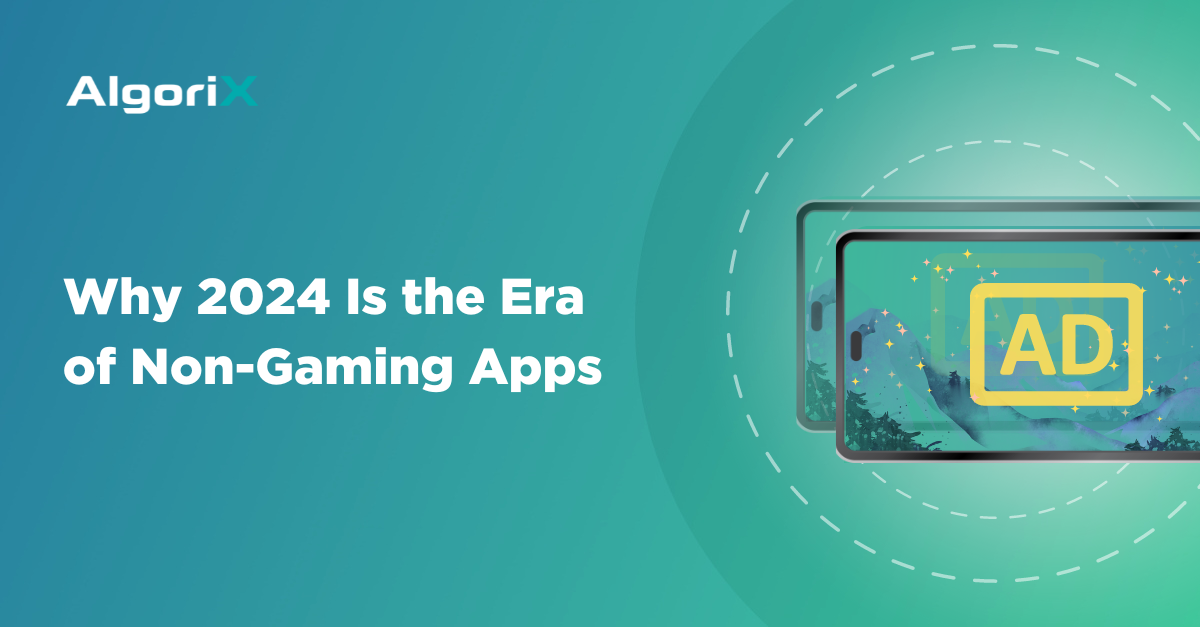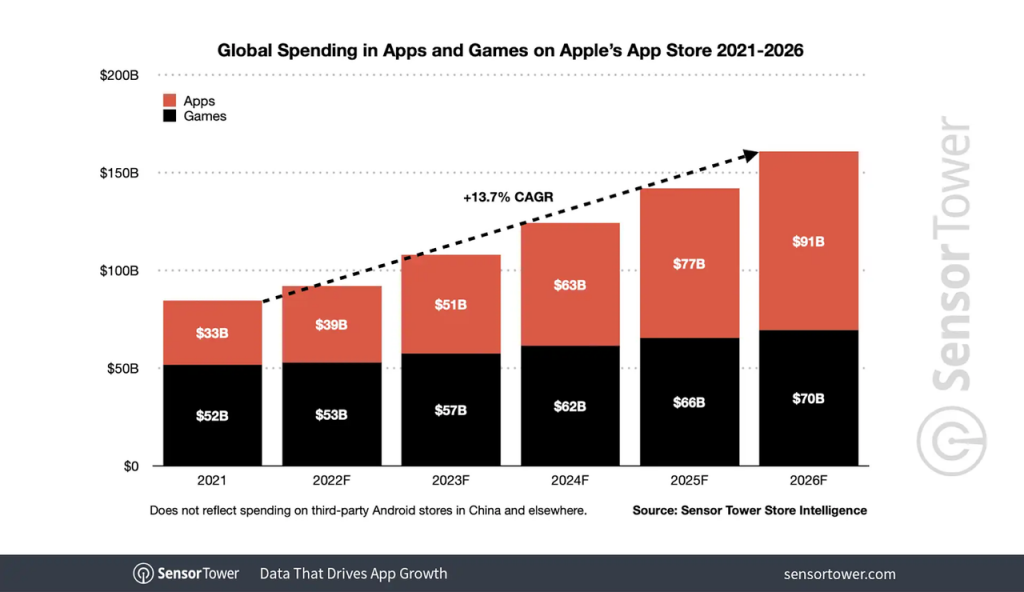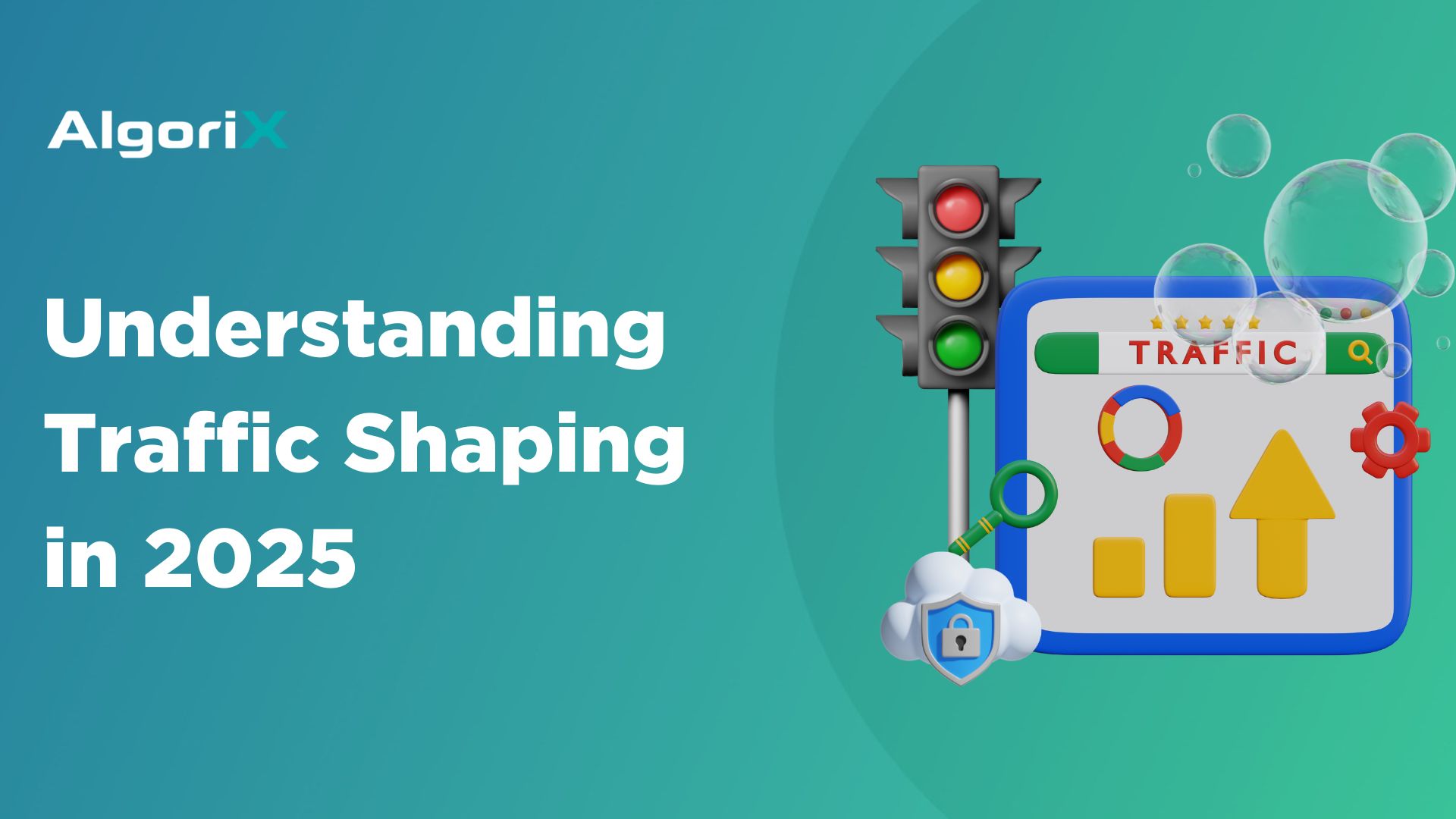As the dust settles on the once-booming mobile gaming industry, 2024 heralds a shift towards a new digital frontier: the rise of non-gaming apps. This transition, fueled by a noticeable slowdown in mobile gaming growth, has paved the way for non-gaming applications to capture the spotlight.
Remote work, e-learning, digital health, and many other categories are driving a revolution in how users interact with their smartphones and tablets.
Analysts predict a significant shift in revenue distribution, with non-game apps expected to command 57% of the market’s revenue by the mid-2020s. This shift starkly contrasts with 2020, when mobile games dominated the App Store, capturing 66% of the revenue share.
Sensor Tower’s projections indicate a decline of 23 percentage points for mobile gaming’s revenue share by 2026, signifying a dramatic reorientation towards non-gaming applications.
Unlike gaming apps, which often rely on short-term engagement and entertainment, non-gaming apps embed themselves into daily life. They offer functionality, productivity, and personal improvement.
This shift marks the beginning of an era in ad tech where the value derived from apps extends beyond leisure, shaping habits, routines, and even professional landscapes.
Common Challenges for Non-Gaming App Monetization
Nongaming apps face a distinct set of challenges in their quest for profitability.
The saturated market means standing out requires more than just a good idea; it necessitates innovation and a keen understanding of user needs.
User retention poses another significant challenge. Without the addictive gameplay mechanics found in mobile games, non-gaming apps must find other ways to keep users coming back.
Furthermore, developing a monetization strategy that resonates with users, who may be less inclined to make in-app purchases or accept advertising, can be a complex puzzle.
New Monetization Strategies for Non-Gaming Apps
Non-gaming apps embrace innovative monetization approaches that promise user engagement and revenue growth to address these challenges.
Audio Ads
Audio ads are proving to be an effective, minimally invasive way to monetize, particularly within apps focusing on audio content like podcasts, music, and guided meditations. These ads fit naturally into the user experience, providing a monetization pathway that doesn’t detract from the app’s core value proposition.
Subscription Models
The subscription model has emerged as a popular choice for non-gaming apps. It offers a win-win situation for all stakeholders. Users get ongoing value through access to premium content, additional features, or an ad-free experience. Developers, on the other hand, enjoy a reliable revenue stream.
Freemium Upsell
The freemium upsell model has become a cornerstone of app monetization strategies, particularly in the non-gaming sector. This approach involves offering a core set of services or features at no cost while reserving advanced functionalities or premium content for paid versions.
By providing core services without charge, apps can attract a broad audience, lowering the barrier to entry. This inclusivity is crucial for building a substantial user base, as it allows potential customers to experience the app’s value proposition firsthand without any financial commitment. Users who find the free version useful are more likely to consider paying for enhanced features.
Affiliate Marketing
Affiliate marketing integrates product recommendations into the app experience, allowing developers to earn commissions on sales. This strategy fits seamlessly with apps that naturally suggest products or services, such as lifestyle and wellness apps.
E-commerce Integration
Incorporating e-commerce directly into apps allows for the sale of goods and services within the app itself. This strategy is particularly effective in niches like fashion and home decor, where the line between content and commerce can be beautifully blurred.
Next Steps for Advertisers
Advertisers targeting non-gaming apps need to reassess their strategies. The key lies in creating advertising that adds value, leveraging deep insights into user behavior to deliver personalized, relevant experiences. Collaboration with non-gaming apps offers a fresh avenue to engage with users, requiring a nuanced understanding of the app’s context and audience.
Partnering with a company like AlgoriX, known for its commitment to offering advertisers premium inventory, can be a transformative move in digital advertising. AlgoriX’s reputation for quality and innovation makes it a standout choice for advertisers aiming to maximize the impact of their campaigns in non-gaming apps.
The shifting focus from mobile gaming to non-gaming apps reflects broader consumer behavior and technological changes. By innovating around monetization and user engagement, non-gaming apps are carving out new realms of digital interaction.
For developers and advertisers alike, success in this new era demands creativity, insight, and a steadfast commitment to delivering value at every touchpoint.














